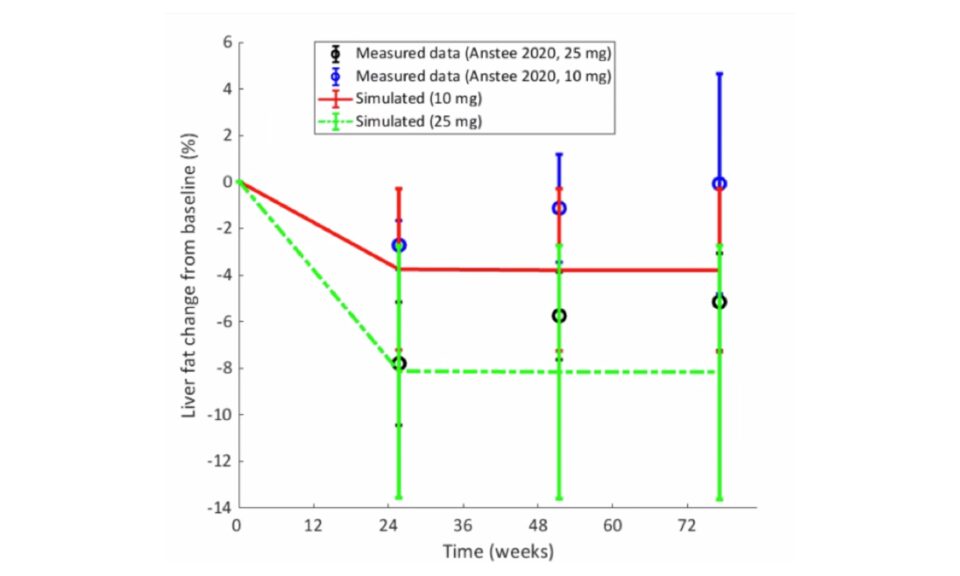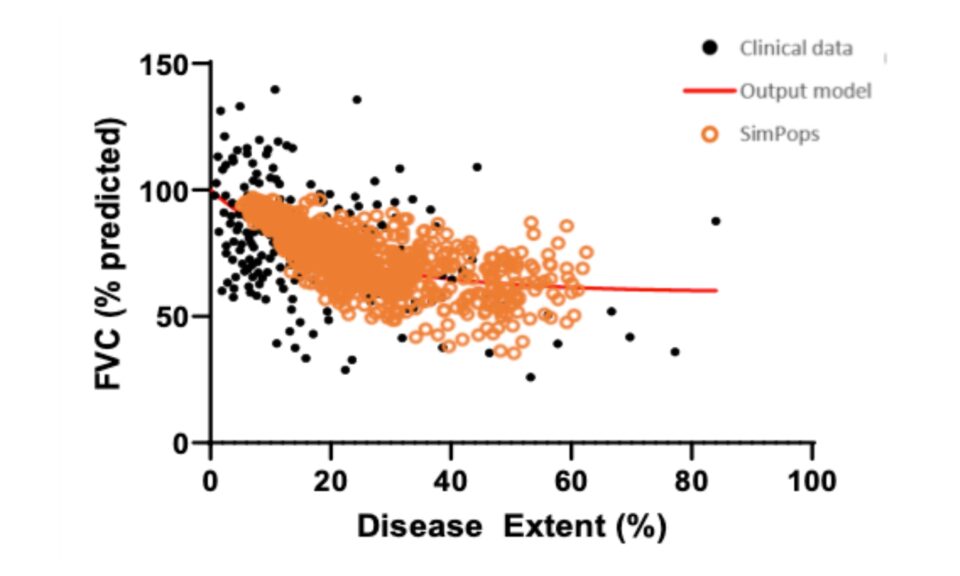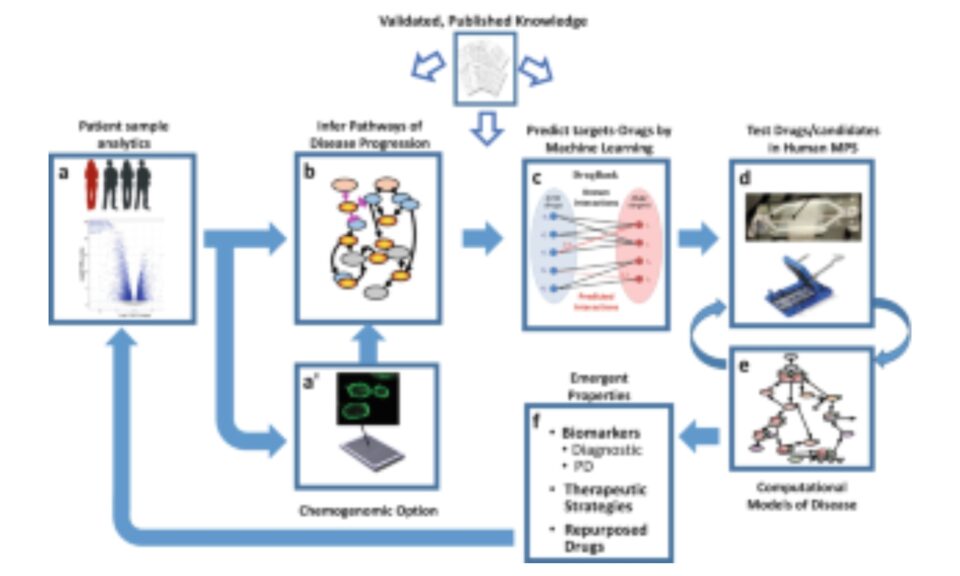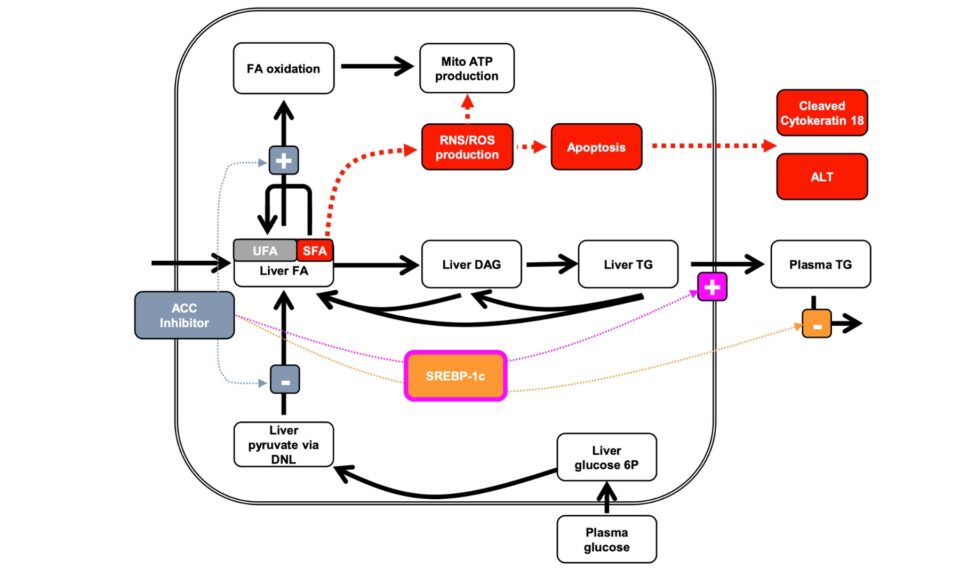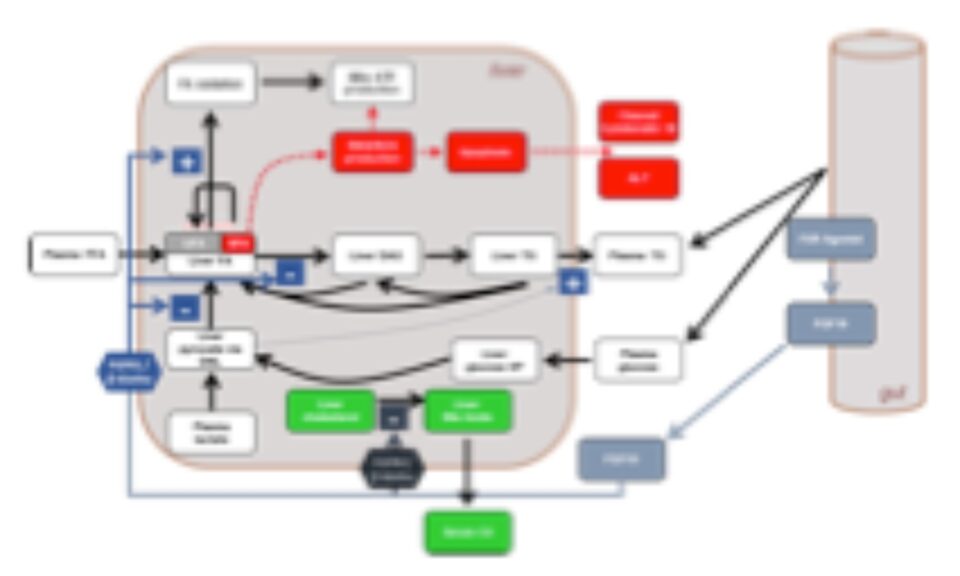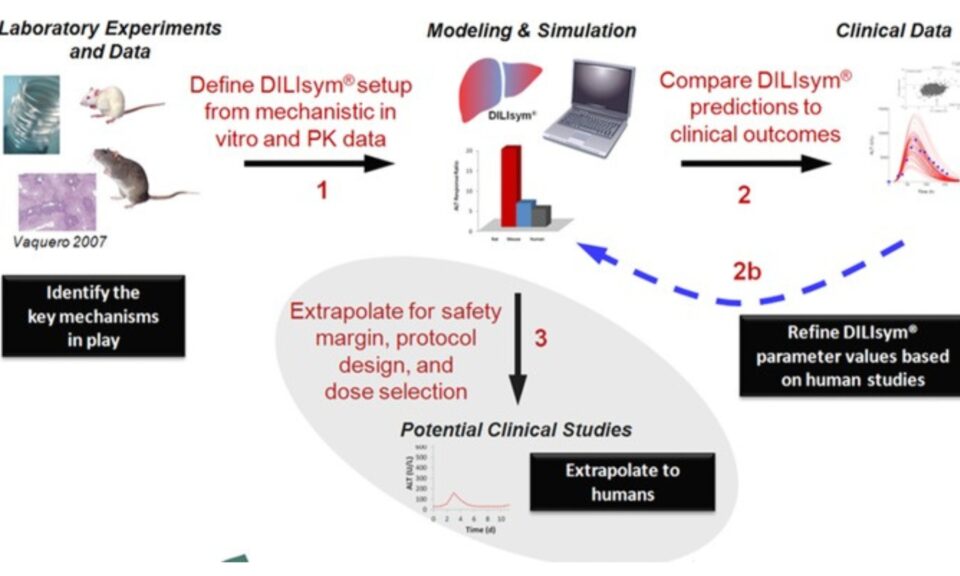QSP is the discipline of building mathematical models to mechanistically simulate the dynamics of diseases and treatments. In this approach, we write systems of equations that represent the best scientific understanding of cause-and-effect, mathematically capturing detailed interactions occurring at sub-cellular, cellular, organ, and physiological scales. These equations are then calibrated using both public and proprietary data, including in vitro, pre-clinical, and clinical studies. This results in an interpretable and validated predictive model founded on solid and explicit first principles.
By incorporating disease pathophysiology, clinical presentation, and clinical outcomes into a unified framework, QSP models provide a powerful tool for evaluating therapies. The mechanisms of action for compounds are represented directly in QSP models, enabling them to mechanistically account for both pharmacokinetic and pharmacodynamic effects. Additionally, the QSP approach allows us to define virtual patients who, like real patients, differ in ways that affect the course of disease and treatment. Simulating diverse, realistic virtual populations under different treatments, we can predict how clinical outcomes vary across patients and alternative treatment strategies. Using this information, researchers and decision makers can understand the strengths and weaknesses of therapies, and design their compounds, trials, or treatment protocols to maximize efficacy.
















